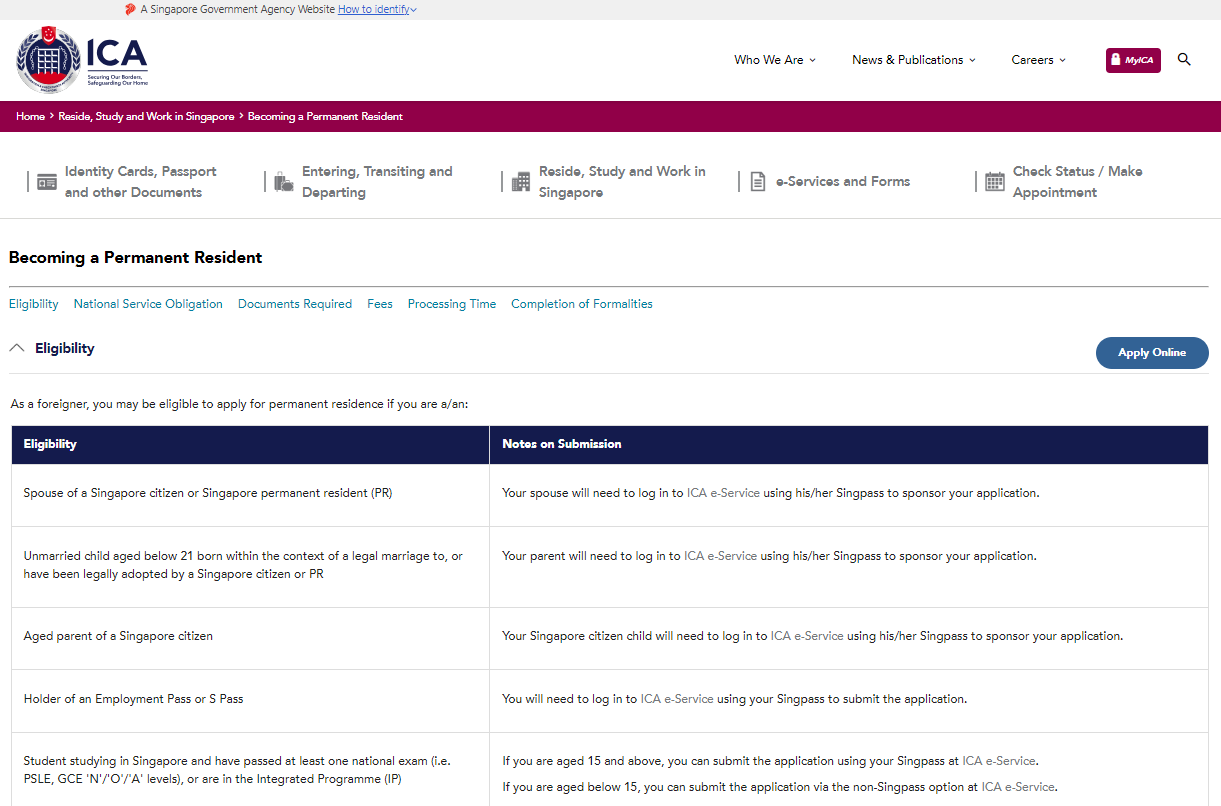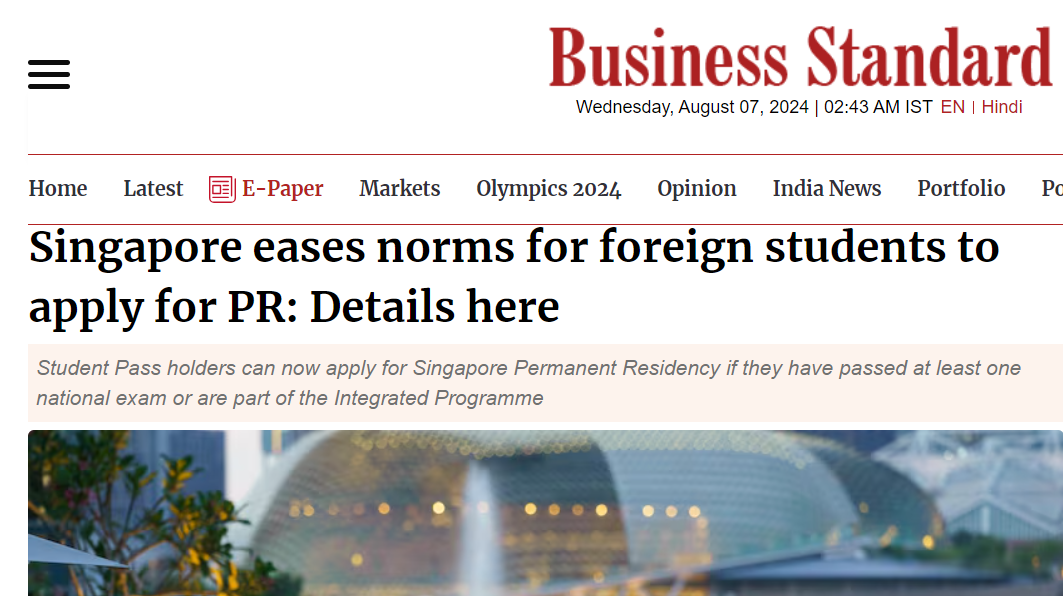SINGAPORE: A recent report by Business Standard published in India raised eyebrows after it claimed that Singapore has eased norms for foreign students to apply for permanent residency (PR).
The report notes that “Singapore has now made it easier for students to become permanent residents (PRs)” in a bid aimed at making the country “a more attractive destination for international students, including those from India.”
It said that one of the most notable amendments is that Student Pass holders can now apply for PR if they have passed at least one national exam or are part of the Integrated Programme.
Business Standard reported:
“This is a major shift from the previous requirement, where students had to wait for at least two years before they could apply for PR. This change means students who excel academically now have a faster route to PR, making it easier for them to settle in Singapore permanently.”
The report went on to list in detail how foreign students can study in Singapore, how they can apply for a Student Pass, the benefits of attaining Singapore PR and how it could be a pathway to citizenship, as well as how one could go on to apply for PR.
The writer also notes that Singapore could be an attractive place for the people of India to study as there is a 700,000-strong “large Indian community” in Singapore, which boasts a world-class education system.
A ranking of the top universities in Singapore, as well as a comprehensive list of the most popular courses, tuition costs eligibility requirements, and cost of living details, are also featured in the article.
Some Singaporeans responding to the article have expressed surprise. Socio-political commentator Andrew Loh posted a link to the article on his Facebook page and asked if the easing of restrictions for foreign students is true.
Responding to his post, Singapore Democratic Party (SDP) chairman Paul Tambyah linked to the Immigration and Checkpoints Authority’s (ICA) official page that indicates students studying in Singapore and have passed at least one national exam (i.e. PSLE, GCE ‘N’/’O’/’A’ levels), or are in the Integrated Programme (IP) are eligible to apply for PR.

Other commenters responding to the post questioned the logic behind allowing students to apply for PR.
Facebook user Yvonne Chng asserted, “In the first place it’s ridiculous that students can apply for PR. In other countries you have to be working there for a number of years before you can apply for PR.”
Another netizen, Juliana Theresa Dorai, echoed this view, saying, “This is utter rubbish! Should at least have the common sense to have a window period of 5 years living/working here before being eligible for PR.”
One commenter, Goh Rayson, asked whether the authorities are at least placing these students under a bond to work in Singapore for a certain number of years if they are granted PR to deal with instances of some individuals using Singapore PR to springboard to other countries.
He asked, “What merits do these students have, what have they contributed to Singapore and Singaporeans?
Most of the foreign students I have personally engaged with during my course of work either say they will leave SG upon graduation or may stay to work for a year or two before moving on elsewhere using this as a stepping stone, a springboard.
Does the gov tie these students down for a certain number of years when granting them a PR status?” /TISG

